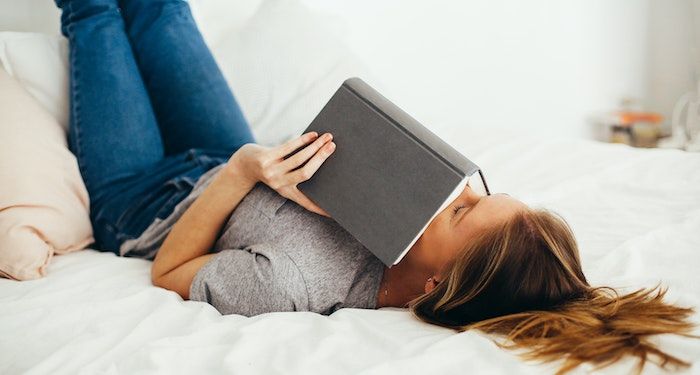
Are You Really a Reader if You Have to Motivate Yourself to Read Books?
I recently came across an interesting comment on a post about setting a Goodreads reading goal. The comment said — and I’m paraphrasing — that if you have to motivate yourself to read, you’re not a real reader. Now, I generally dismiss any statement that tries to assert the category of the One True Reader versus us plebeian, wannabe readers. At the same time, it’s an interesting question: why do you call yourself a reader if it requires effort to get yourself to read?
After all, I don’t have to set a goal for how many minutes of TikTok I’ll watch in a year (and wow, do I ever not want to know that number). I don’t call myself a TV watcher as an identity, despite happily consuming multiple seasons of The Great British Baking Show in the space of a week or two. They’re entertainment, and they’re what I turn to when I have a free moment and want to escape reality for a while. YouTube and Twitter are things I have to set limits on, not convince myself to do. Shouldn’t reading be as natural as that?
For some people, it is. Many people who call themselves readers fill every spare moment with reading without having to think about it. They sneak pages in line at the grocery store and listen to audiobooks while walking the dog. They get home from a hard day at work and curl up with a book to relax. Although I’m definitely in the top percentile of bookish people, I’m sad to say this isn’t how I read.
For me, reading is enjoyable, but it’s not as instinctual as turning to as a screen. I think of scrolling as mindless — despite the fact that Twitter is a firehose of information, images, and quickly changing tones and topics that, upon reflection, is probably mentally exhausting. I turn to these forms of media when I want to turn my brain off. It’s the same reason I find it difficult to watch dark, complicated TV shows, because that’s not what I’m looking for from the experience.
Books are a focal point of my life, but I don’t really think of reading as an escape. I read to make connections, to empathize with people, and to imagine others complexly. I read to engage with ideas and to feel deeply. I love reading light and fluffy books, too, but even the silliest of books feels like a conversation, like I’m an active participant, unlike watching a movie or short video.
Reading is good for me. It makes me happier and calmer, and I believe that it helps me grow as a person. But just like eating relatively healthy makes my life better, that doesn’t make it easy to do. It’s instinctive to reach for something instant that doesn’t take effort or thought. So I set reading goals to remind me to circle back to the media that is nourishing for me.
My Goodreads reading goal is simply the number that I’ve found is the minimum that I feel content with at the end of the year. When I read significantly less than that, as I did in 2020, I have noticed that it corresponds with a more stressful year that I was not satisfied with. Reading wouldn’t have been able to rescue 2020 from being a dumpster fire, but I know that if I had made space to read more instead of zoning out playing video games for eight hours straight, I would have felt a little better.
For those of you who easily reach for an apple instead of a bag of stale potato chips, I salute you. But the rest of us have to find ways to negotiate with our bodies and minds to make sure we’re getting everything we need. Just because it doesn’t come naturally doesn’t mean we don’t enjoy it, or that it’s not worth doing.
Now if you’ll excuse me, I’m two books behind my Goodreads goal, so I have some reading to do.
















